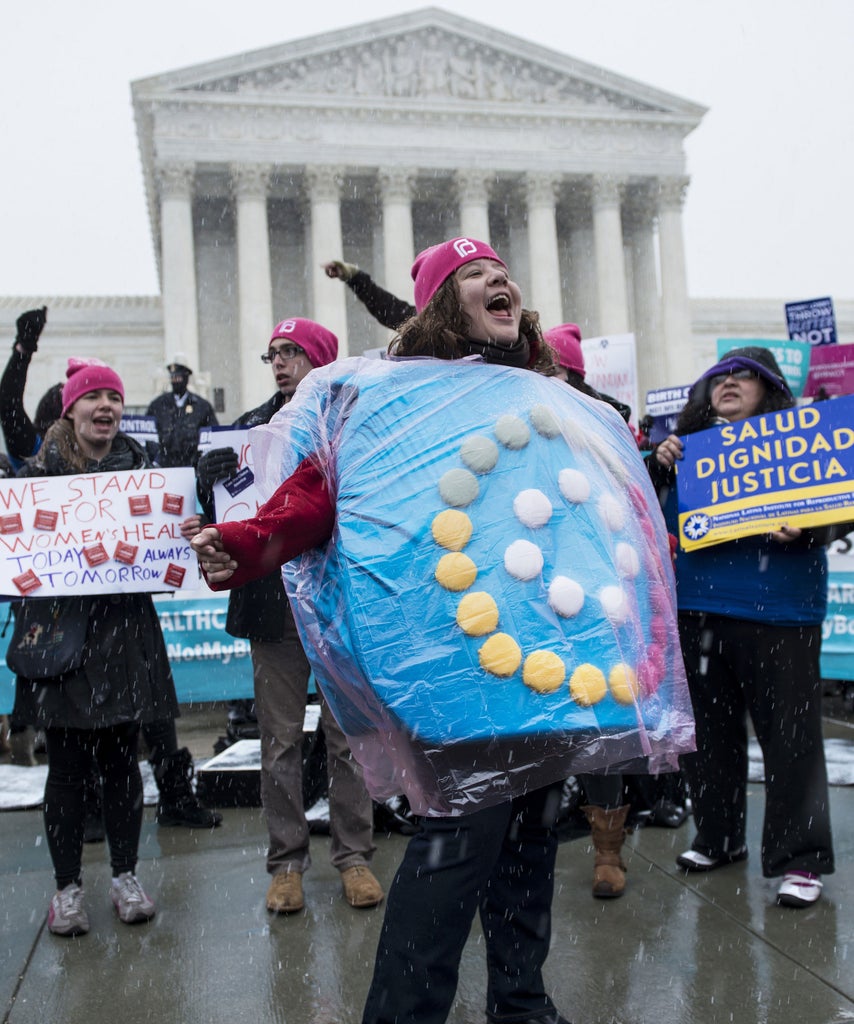#DMTBeautySpot #beauty

On May 6th — just three days before the 60th anniversary of birth control pills — the Supreme Court will hear two cases that will make key determinations in the future of contraception. Little Sisters of the Poor v. Pennsylvania and Trump v. Pennsylvania will both decide a years-long struggle over whether employers with religious objections to birth control have the right to deny insurance coverage of contraceptives to their employees.
In Little Sisters of the Poor v. Pennsylvania, SCOTUS will determine if employers are allowed to deny insurance coverage that pays for birth control based on “moral” grounds or religious beliefs. In relation to that, Trump v. Pennsylvania will determine whether the Departments of Health and Human Services, Labor and the Treasury have authority to expand those insurance exemptions to other businesses.
Currently, Trump administration regulations allow employers to claim exemptions to a mandate in the Affordable Care Act, which requires the majority of employer-provided plans to include birth control coverage without a copay. This lets religious organizations — like churches, affiliate groups, and even schools — to refuse birth control coverage as part of their health insurance plans. The cases were brought back to the forefront when the administration tried to expand the exemption to include more types of businesses. Pennsylvania and New Jersey challenged the regulation and won an injunction to block the new rule until the case was settled.
Though May 9 of this year will mark 60 years since the Food and Drug Administration (FDA) approved the world’s first commercially produced birth-control pill, Enovid-10, the last six decades have seen numerous legal battles to make the highly controversial contraceptive more accessible.
In 2014, the court sided with the owners of Hobby Lobby, who are conservative and Christian, in a case that also challenged the contraceptive mandate on religious grounds. In 2016, the court sent a case on religious freedoms and employers’ ability to deny coverage of birth control back to lower courts, essentially tapping out on the matter at the national level.
Despite the many cases regarding contraceptive rights that have faced off in the Supreme Court over the years, seats were skewed far less conservative than they are now. Proponents of birth control fear that, as a result of these stacked odds, the court is more likely to swing in favor of Republicans. As the argument turns to determining how “sincerely held moral” convictions or religious grounds can impact contraceptive access, concerns also mount around the impact this will have on marginalized communities, too.
According to Rebecca Thimmesch, Campaign Manager of Free the Pill at Advocates for Youth, the FDA decision to put the first birth control pills on the market were still very-much grounded in stigma. “The Supreme Court didn’t legalize birth control use among married couples until 1965, and among non-married people until 1972. So there has always been inequality in terms of who had access and who didn’t,” Thimmesch tells Refinery29. “For low-income young people, young people of color, undocumented young people and disabled young people, in particular, the obstacles to gaining and filling a prescription for birth control can be insurmountable.”
Advocates for Youth hopes to mitigate these barriers with an initiative to demand members of Congress vote to guarantee that over-the-counter pills can be covered by insurance. “Birth control should be easier to access, not harder,” Timmesch says.
Attorneys on the other side of the aisle, who are hoping religious freedoms are protected first and foremost, have a different view. “They’re not interfering [with employees’ choices]. This is about whether a person can run their business in a way that’s consistent with their beliefs,” Kristen Waggoner, who represents the religious liberty and anti-choice group the Alliance Defending Freedom, told NPR.
But, the religious rhetoric may open the floodgates to regulating birth control in other capacities, experts say. Pennsylvania Attorney General Josh Shapiro told NPR that, “Two federal courts have blocked the Trump Administration’s rules because they would allow virtually any employer to deny women access to contraception for any reason — including the belief that women should not be in the workforce.”
While policy plays a roll in contraceptive rights, Timmesch explains that a cultural shift is still necessary to ensure those protections. In the end, the only way to fight attacks on access to contraceptives is by undoing harmful, outdated narratives around and perceptions of birth control. “Despite these attacks, we continue our work towards a better future. Right now, we’re calling on members of Congress to do their part by ensuring an over-the-counter pill would be covered by insurance,” says Timmesch.
Ultimately, events like the Supreme Court hearings happening today make it possible to open up dialogues about what birth control really is, what it’s like, and why people need it — and most importantly, to shift the laws to make it truly accessible for all.
Like what you see? How about some more R29 goodness, right here?
Fighting For Abortion Access During Coronavirus
All Abortions Are Medically Essential Procedures
DMTBeautySpot
via https://www.DMTBeautySpot.com
Elly Belle, Khareem Sudlow

0 comments